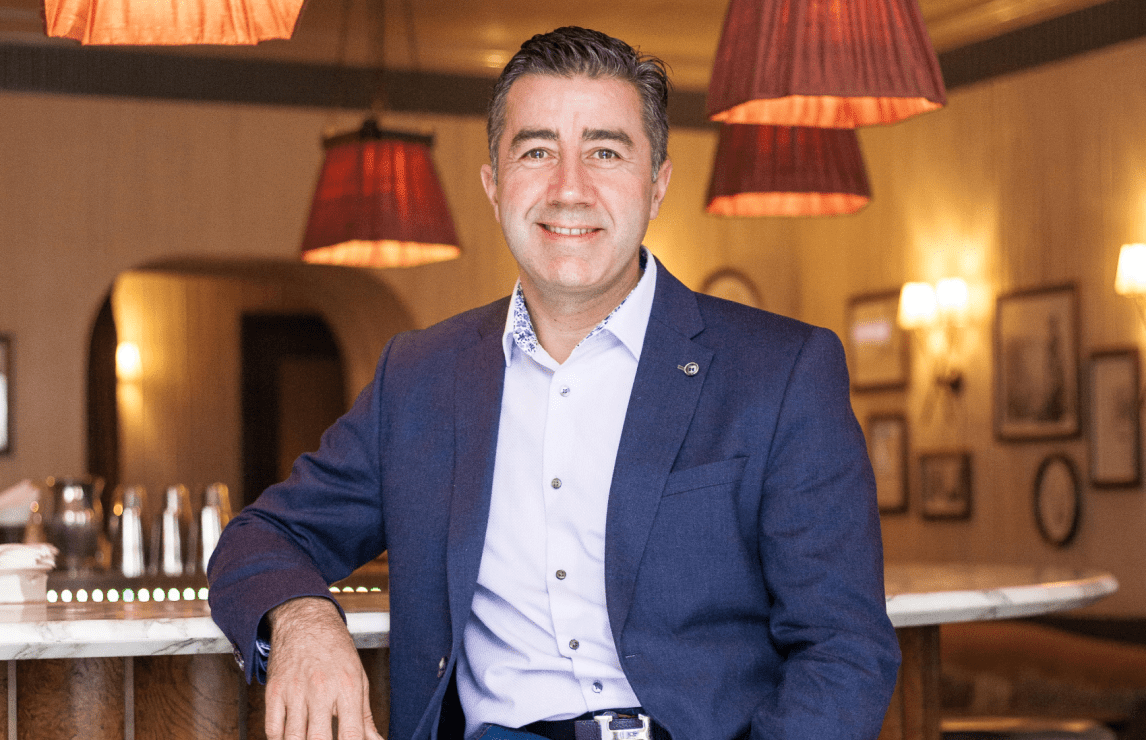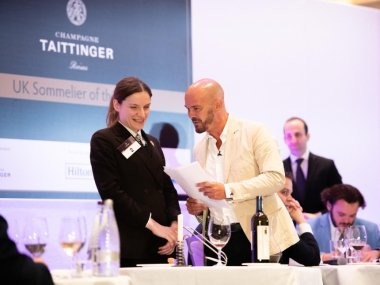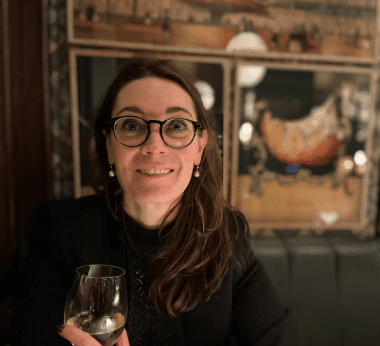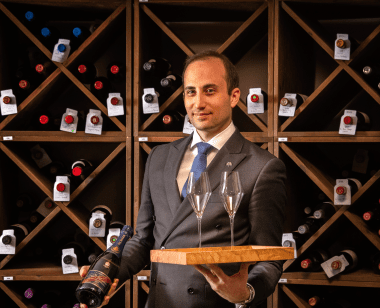The Winning Formula: Vincent Gasnier MS
In the third instalment of our interview series with past winners of the UK Sommelier of the Year competition, we talk to veteran Wine Consultant Vincent Gasiner MS, whose clients include the Soho House group, on falling in love with wine while working in Paris, why prepping for the SOTY is like training for a marathon, and how winning can turn you into a TV star and published author
What first sparked your interest in wine?
My older brother was a sommelier and used to come home from work and talk about wine, which sparked my interest. While I was at catering school I worked in some great restaurants in Paris, including the restaurant in the Eiffel Tower and one called Laurent on the Champs-Elysées, where I met one of my early mentors, Monsieur Philippe Bourguignon, who was the head sommelier there. The restaurant was always full of celebrities, from Robert De Niro to Claudia Schiffer, but he was the biggest star there. He told me to go to Sommelier school then he’d take me back as his apprentice, so I studied in Saumur then was taken under his wing. He took me out into the vineyards and introduced me to producers, showing me a different side to being a sommelier.
Who else has been a mentor to you during your career?
Gérard Basset had a huge influence on me. I came to England to work at the Hotel du Vin in 1996 while Gérard was preparing for the Best Sommelier in Europe competition and we got on like father and son. I helped him prepare for it and in return he helped me with the Sommelier of the Year competition. From October to April I worked like crazy preparing for it. You need to treat it like training for a marathon, so I studied like mad and didn’t go out. I’d be up at the bar at Hotel du Vin doing blind spirts tastings at 7am! Six months later I did the Master Sommelier exams and became the youngest MS in the world at that time. You can overcome a lot of hurdles with the right mentor.
How did winning the UK Sommelier of the Year competition in 1997 impact your career?
I was promoted to Head Sommelier at Hotel du Vin in Winchester, and winning led to various radio and magazine appearances. When my daughter was born in 2000 I wanted a break from service so I became a wine adviser to footballers with the help of Graeme Souness, who was looking into buying a restaurant in Winchester at the time and introduced me to his friends. Doing that led me to Nick Jones and Soho House, where I’ve been a wine consultant since 2001 across all their sites.
How has the competition evolved since you took part in it 27 years ago?
The selection of wines has evolved along with the wine map. Take California – in 1997 you had Napa, Santa Barbara and Sonoma and that was it, now you have so many different AVAs. In the blind tastings you’ll find grapes like Assyrtiko now. The competition is also a lot more international in its reach, with participation from all over the world and a lot more women, which is great.
How did you prepare for the competition?
I had a fixed routine and didn’t take any time off from it. I’d spend hours practicing different restaurant floor scenarios and always had a corkscrew in each pocket in case I had reach for the bottle with a specific hand. I did blind tastings every day at work. We had suppliers and producers coming in all the time to show us their wines, and Gérard would get me to try them blind at the end of service. I was lucky to be in the right place at the right time.
Did you face any challenges while preparing for the competition?
Getting a cold was a big challenge, so I tried to stay away from people as much as I could to avoid getting ill and losing my sense of smell and taste. If you compete in the competition with a cold it’s like a footballer playing with an injury or the wrong boots.
What advice would you give to sommeliers who are preparing for the competition?
You’ve got to make it your priority and that will come with sacrifices. You need to be really focused and well prepared for it. Talking to and sharing knowledge with other sommeliers in the run-up is really important, so go to as many tastings as you can and soak up all the industry knowledge. Read wine books and magazines and totally immerse yourself in that world. And practice, practice, practice! You need to be like a politician and have the right answer for whatever they throw at you.
What advice would you offer to sommeliers entering the industry?
Loving wine is a good start. Being a Sommelier opens a lot of doors – you can go on to become a wine merchant, a wine writer or a TV personality. It’s important to be a team player and work closely with the restaurant staff and chefs, as they can help you to hone your skills.
How important is continuous learning and professional development in the wine industry?
It’s super important – that’s why I keep judging in competitions. There are always new things to learn in wine, your job is never done.
What qualities are essential for someone to succeed as a sommelier?
You need to be humble and able to interact with people from all walks of life, from multi-billionaires and celebrities to people who know nothing about wine. It’s easy to lose people when you’re talking about wine, so you need to gauge your audience correctly and speak to them on their level. A thirst for knowledge and a curious nature is helpful, as is being polite to everyone you work with.
What memorable moment from your career are you particularly proud of?
Publishing my first book, Drinks, with Dorling Kindersley. It took me two years to write it in my spare time and I felt like a celebrity when it launched as we threw a party at Soho House for it.
How did your experience as a sommelier help shape your career path to where you are today?
Starting out as a sommelier has given me a great platform to develop my career and has opened a lot of doors into things like writing, TV appearances, events and managing private client cellars.
Which grapes / regions / wines are exciting you at the moment?
I really like the whites from the Southern Rhône, which are so exiting but really underrated. Whites from satellite appellations like Vacqueyras and Costières des Nimes are amazing value for money.
If you could only take one wine to a desert island what would it be and why?
Chateau Latour 1978, which is the wine I celebrated with when I got engaged and is one of my all-time favourites. I’d drink it for the memories.
What are your future goals and aspirations within the wine industry?
I’d really like to do the Master of Wine qualification – my wife keeps asking me to do it. It takes a lot of time to prepare for and I want to embark on it from a place of enjoyment. My ultimate goal is to move closer to the source where winemaking happens, either to California or the South of France where vineyards are close by. I don’t want to own my own vineyards but I’d like to get more involved in the production side of the wine industry and feel part of a winemaking community.
For more information on how to enter UK Sommelier of the Year click here



